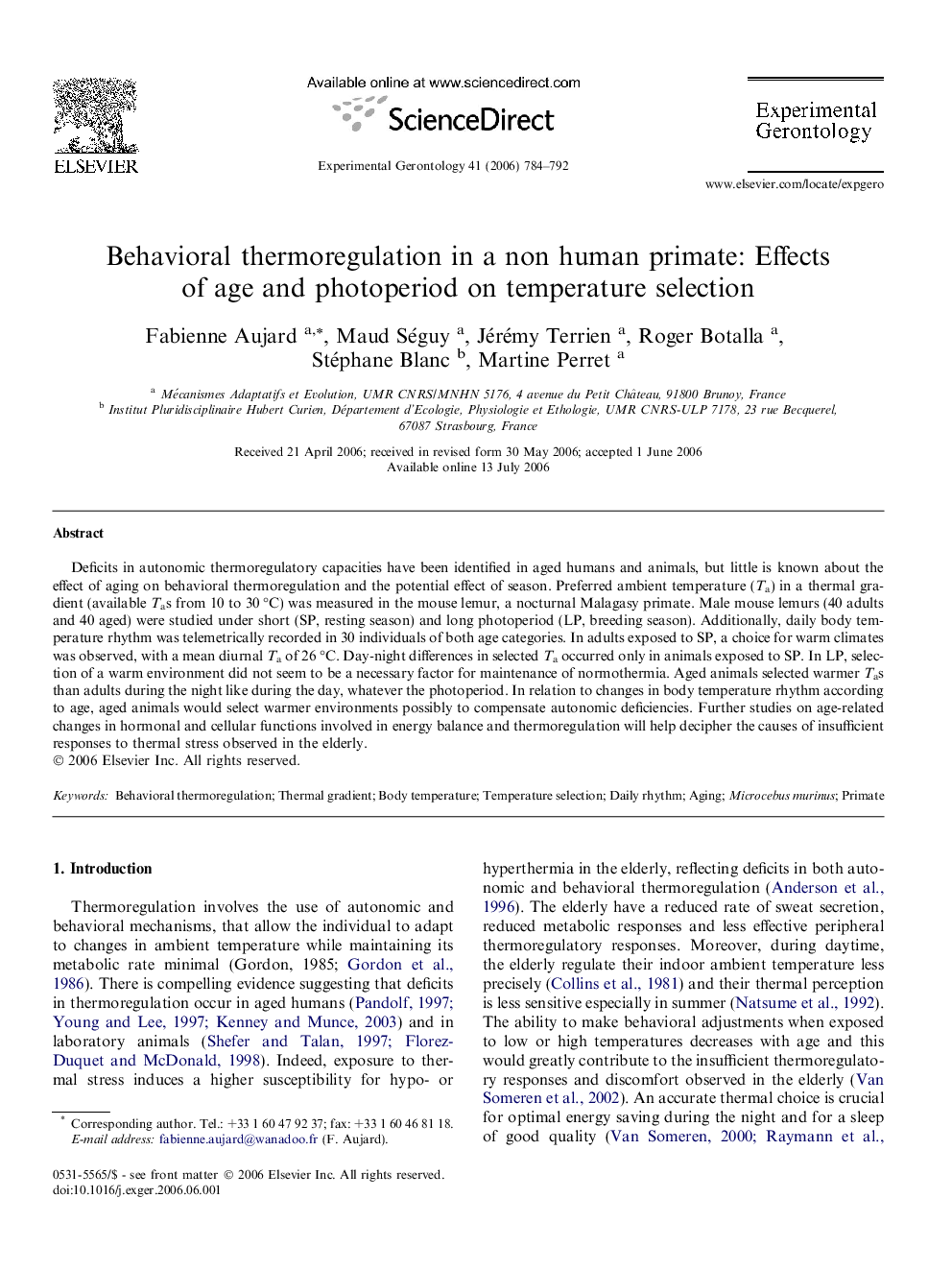| Article ID | Journal | Published Year | Pages | File Type |
|---|---|---|---|---|
| 1907355 | Experimental Gerontology | 2006 | 9 Pages |
Deficits in autonomic thermoregulatory capacities have been identified in aged humans and animals, but little is known about the effect of aging on behavioral thermoregulation and the potential effect of season. Preferred ambient temperature (Ta) in a thermal gradient (available Tas from 10 to 30 °C) was measured in the mouse lemur, a nocturnal Malagasy primate. Male mouse lemurs (40 adults and 40 aged) were studied under short (SP, resting season) and long photoperiod (LP, breeding season). Additionally, daily body temperature rhythm was telemetrically recorded in 30 individuals of both age categories. In adults exposed to SP, a choice for warm climates was observed, with a mean diurnal Ta of 26 °C. Day-night differences in selected Ta occurred only in animals exposed to SP. In LP, selection of a warm environment did not seem to be a necessary factor for maintenance of normothermia. Aged animals selected warmer Tas than adults during the night like during the day, whatever the photoperiod. In relation to changes in body temperature rhythm according to age, aged animals would select warmer environments possibly to compensate autonomic deficiencies. Further studies on age-related changes in hormonal and cellular functions involved in energy balance and thermoregulation will help decipher the causes of insufficient responses to thermal stress observed in the elderly.
